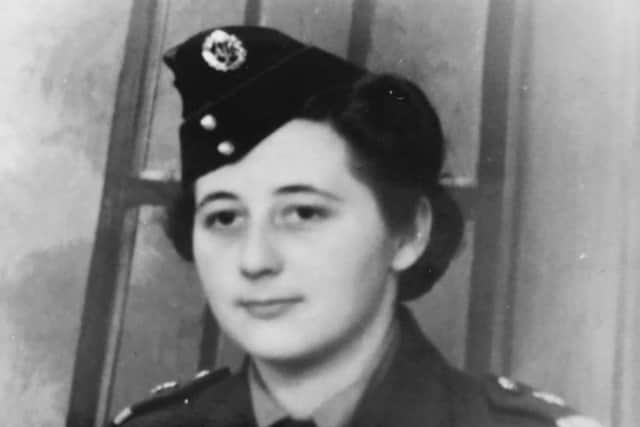The tragedy of Sheffield servicewomen, aged just 21, killed in tragedy which claimed 26 lives
and live on Freeview channel 276
Lance Corporal Mollie Carter and Private Jean Copley were both just 21 when they and 24 other servicewomen were tragically killed when their quarters in Great Yarmouth, Norfolk, were hit by enemy bombs on the morning of May 11, 1943. Eighty years later, it remains the biggest loss of female Army life in British history.
Today, L/Cpl Carter is remembered at Handsworth New Cemetery and Pte Copley at Aston-cum-Aughton Cemetery. But while Mollie is honoured on the local war memorial, her name has been misspelt on her Commonwealth War Grave, a mistake which is finally being rectified as the tragedy is commemorated.
Advertisement
Hide AdAdvertisement
Hide AdEvents are taking place across the country this Sunday, May 14, at 2pm, to honour the memory of those who died – the first coordinated memorials to mark the disaster. The events include services at both Handsworth New Cemetery and Aston-cum-Aughton Cemetery, as well as at the Doncaster Cenotaph, where Private Doris Wimbush, aged 28 when she was killed in the bombing, is remembered.


The women who were killed that morning when the bombs were dropped by Focke-Wulf fighter planes were all serving at the time in the Auxiliary Territorial Service, which in 1949 became the Women’s Royal Army Corps (WRAC) Association. It is the WRAC which has coordinated the events taking place in their memory.
Paula Rogers, CEO of the WRAC Association, said: “We must remember the sacrifice made by these women, killed while serving their country. The WRAC Association charity continues to work in honour of our servicewomen, alive and deceased, ensuring that none are forgotten.”
Nearly 350,000 women served in the ATS, which operated as the women’s branch of the British Army between 1938 and 1949. Members included the late Queen Elizabeth II, who was patron of the WRAC Association until her death.
Advertisement
Hide AdAdvertisement
Hide AdThe WRAC Association has launched the #WeWillRememberHer campaign to ensure their contribution is never forgotten. It is urging people to check their local war memorial to see if women from the area are mentioned, as it says their names are too often left off, while their male counterparts are included.